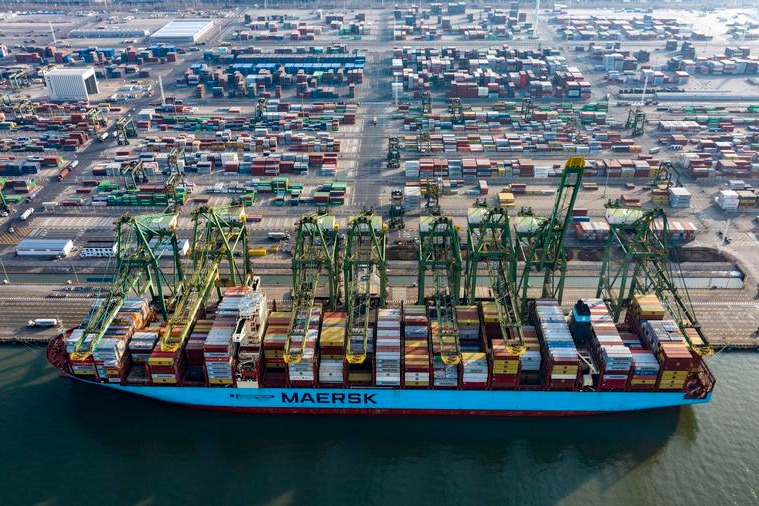China making the most of a rapidly changing world


The Bretton Woods institutions — the International Monetary Fund, the World Bank and the General Agreement on Tariffs and Trade (which was replaced by the World Trade Organization in 1995)-have dominated global trade and development policies in the postwar era, because developed countries were at the height of their power when those policies were devised.
After the end of World War II, more and more developing countries gained independence from colonial powers, and started rebuilding and improving socioeconomic structure. Consequently, countries of the Global South collectively became increasingly important.
Today, the global economic balance has shifted to the Global South. For example, the G7 countries' combined share of global GDP declined from 67 percent in 1994 to 44.2 percent in 2022. On the other hand, the fast-paced economic growth of China raised its share of global GDP by four times during this period.
Even after this major shift of economic power, the G7 countries continue to behave as if they are still as powerful as they were in the pre-1990 period.
In a rapidly changing world, the economic and political hefts of the Global South have steadily increased and the West's global dominance is being challenged, with China becoming the first serious competitor to the US.
In May 2015, aware of the importance of modernizing China's manufacturing sector, sharpening the country's global competitiveness, and increasing its market share, President Xi Jinping announced the "Made in China 2025" plan. The idea was to significantly strengthen China's manufacturing prowess by rapidly developing 10 high-tech industries within a decade. These industries include electric vehicles, energy equipment, advanced robotics and artificial intelligence, information and communications technology, telecommunications, high-speed railways and new synthetic materials.
According to Bloomberg Intelligence, in 2015, China was among the global leaders in only solar energy and new materials like graphene, and was globally competitive in high-speed railways. In all the other areas, it was behind the US. Of the 17 subcategories, Bloomberg said it was behind in 11.
But today, China is behind the US in only three categories, and is likely to be behind in only one category — semiconductor equipment manufacturing — by 2030. It is expected to become a global leader in seven categories, and globally competitive in nine. This is a great achievement by any measure, especially because China's success comes despite import restrictions by the West.
China's success is also linked to its efforts to reduce air pollution and carbon emissions. China's successes in renewable energy generation and the development of EVs and high-speed railways have gone a long way toward reducing the country's air pollution and emissions levels. For example, in 2023, it accounted for 60 percent of the added renewable energy capacity globally. The International Energy Agency estimates that by the early 2030s, China's solar power generation will exceed the current total electricity demand of the US.
Besides, when Made in China 2025 was launched in 2015, the majority of the top 10 most polluted cities in the world were in China. Today, not even a single Chinese city is on the list of the top 15 most polluted cities.
China's economic and commercial success has meant that it is now the main trading partner of more than 150 economies. Rattled by China's remarkable technological progress, the United States and the European Union have imposed punitive tariffs and built trade barriers against Chinese goods.
Former US president Donald Trump launched the tariff war against China in 2018, with incumbent President Joe Biden not only maintaining them but imposing new tariffs, including 100 percent tariffs on Chinese-made EVs. Worse, president-elect Trump said during his election campaign that he would impose punitive tariffs on all Chinese goods. If Trump makes good his threat, the additional tariffs on $500 billion worth of imported Chinese goods would affect American consumers and enterprises the most, and ripple through the global economy in unexpected ways.
Much of these tariffs, imposed on the pretext of safeguarding US national security, are aimed at checking China's incredible economic rise. But the fact is, many of the tariffs and export restrictions may be effective in the short term but are likely to be counterproductive in the medium to long term.
Take the case of Huawei for example. US enterprises have been forbidden to deal with the Chinese telecom giant on national security grounds. Huawei did struggle in the short term, but the US sanctions prompted it to intensify efforts to become self-sufficient in advanced technology. As a result, Huawei's latest smartphone, Mate70, uses a completely new Chinese operating system HarmonyOS NEXT. And Huawei smartphones are now ubiquitous in most developing countries.
In addition, Huawei's revenue in the first half of 2024 reached 417.5 billion yuan ($57.74 billion), up 34.3 percent year-on-year, and net profit increased to 55.1 billion yuan, its best ever performance. In the process, many US companies lost their market share in China.
The EU followed the US in imposing tariffs of up to 45 percent on Chinese-made EVs for at least five years.
In the final analysis, countries and companies are likely to do whatever they perceive to be in their best interests. While the US' pressure to restrict chip exports is likely to increase under the new Trump administration, many other Western countries and companies are having second thoughts about the punitive tariffs. For instance, the CEO of Netherlands-based ASML Holding, which has a monopoly on manufacturing machines that help companies to produce the most-advanced chips, Christophe Fouquet, said in mid-October: "The question is what is right for the Netherlands? What is right for Europe?" Still, the Dutch government is struggling to find a middle ground between keeping the US happy and securing its biggest company's largest market.
China appears to be taking a different approach to punitive tariffs. During the 2024 Summit of the Forum on China-Africa Cooperation in September, for example, President Xi announced China would not impose any tariffs on goods imported from developing countries that have diplomatic ties with Beijing.
The future is difficult to predict. But since the interests of different Western countries are different, the US may find it very difficult to convince all its Western allies to follow its strident anti-China policy. Some may follow the US, while the others may choose the development path that best suits their national interests.
Asit K. Biswas is a distinguished visiting professor at the University of Glasgow, UK, director of Water Management International, Singapore and chief executive of Third World Centre for Water Management, Mexico; and Cecilia Tortajada is a professor in practice at the School of Social and Environmental Sustainability, University of Glasgow. The views don't necessarily reflect those of China Daily.
If you have a specific expertise, or would like to share your thought about our stories, then send us your writings at opinion@chinadaily.com.cn, and comment@chinadaily.com.cn.
































